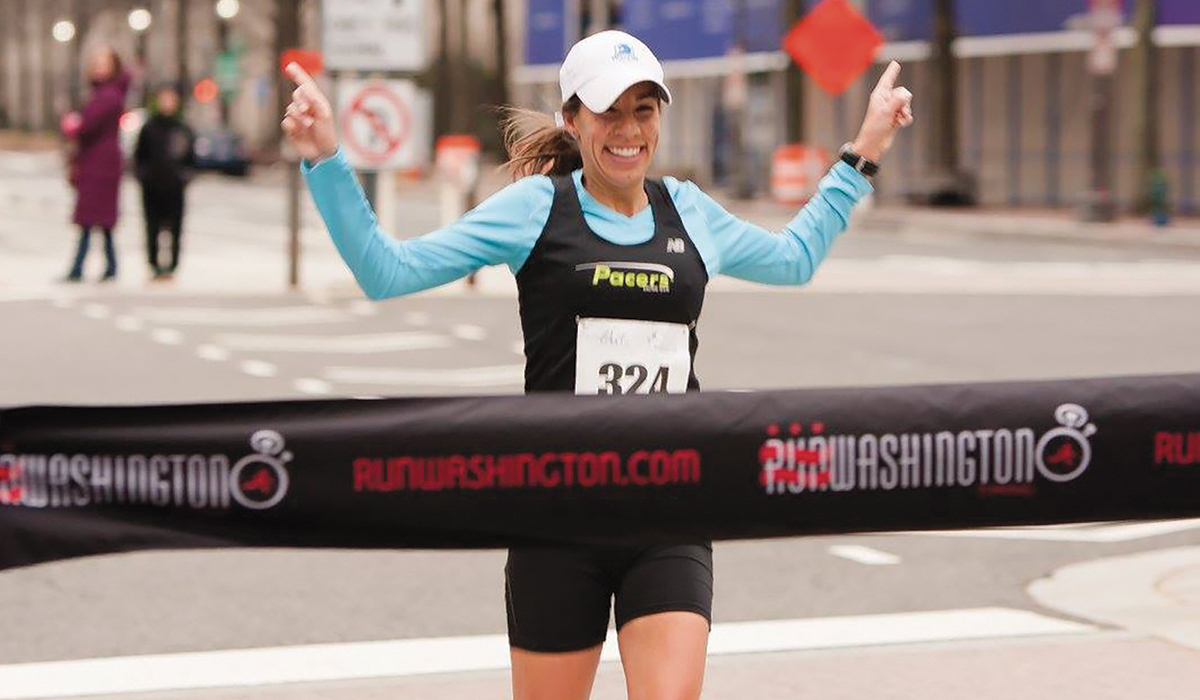

Hadar Goren
In 2008, when she became a graduate student at Catholic University, Vanessa Corcoran, M.A. 2010, Ph.D. 2017, took up running. Lacing up her sneakers, she soon found, helped her cope with the pressure that can often come with being a graduate student.
Corcoran chose Catholic University for its reputation as a place for medieval historians, especially under the direction of Katherine Jansen, professor of medieval history. “I was surrounded by students and faculty who motivated me to keep up with their rigorous pace of research. All of my professors were incredibly passionate about their field, and sought to encourage our growth as burgeoning scholars,” she said.
Despite these positive influences, she began to experience “imposter syndrome,” which, she learned, is common among graduate students. “In my early years in the program, I feared that my professors would realize that it was a mistake for me to be there. I didn’t realize that other grad students also shared that feeling.”
Inspired by her experience and what she learned about helping other graduate students, Corcoran wrote the book, It’s a Marathon, Not a Sprint: My Road to the Marathon and Ph.D., after earning her doctorate.
“I wanted to write a book that I wish had existed when I started graduate school and was feeling out of my depth,” said Corcoran. “It is my hope that my book will help demystify the process of writing a dissertation and also make graduate students feel less lonely and intimidated.”
A supportive community helped Corcoran. “I was fortunate that my fellow graduate students in the history department were very encouraging. We formed writing groups, working on our dissertations together, offering each other silent encouragement and accountability.”
And she continued to run. “It became an important complement to my education. I relied on running to provide a physical and emotional release from the tumultuous aspects of my studies. And it served as a confidence booster when I was feeling discouraged,” she said. “I soon got into running marathons, and even qualified and ran in the Boston Marathon on two occasions.”
In her book she talks about the technical, emotional, and mental challenges of going through a program. “I hope to raise attention to the mental health concerns that people face while in graduate school,” she said.
“It’s been nearly 14 years since I took up running, and now I can’t imagine my life without it,” said Corcoran, now an advising dean at Georgetown University. “Within a few minutes of getting out the door, all of the accumulated tension and worries start to disappear, and I always finish my run in a better mental place than when I started.”
— G.O.